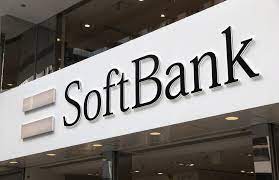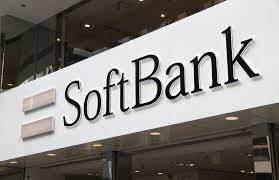
Sliding valuations in SoftBank Group Corp's Vision Fund unit's listed portfolio portend to further pain for CEO Masayoshi Son when the company announces April-June profits on Monday, as investors chill on the high-growth enterprises he favours.
According to Redex Research analyst Kirk Boodry, Vision Fund's public portfolio first-quarter loss could exceed $10 billion due to falls in robotics firm AutoStore Holdings Ltd, e-commerce firm Coupang Inc, and artificial intelligence firm SenseTime Group Inc, whose shares fell by nearly half on the last day of June.
While values of Vision Fund's private portfolio are difficult to ascertain, writedowns contributed to the record $26 billion Vision Fund loss revealed in May, as investor anxiety about the prospects for high-growth firms filters through to private markets.
The depth of the revaluation was highlighted last month when Swedish payment firm Klarna raised cash at a value that was 85 percent lower than the previous year's SoftBank-led investment round.
According to Jefferies analyst Atul Goyal, writedowns in the private portfolio are unlikely to reflect the market's current downturn in values.
Chief Executive Son had been investing aggressively through the second Vision Fund, in which he has a personal stake, but in May vowed to "play defence" and limit expenditure in the face of market uncertainty caused by rising interest rates and political unrest.
The 64-year-old millionaire previously incurred personal losses while trading derivatives and publicly traded stocks through his SB Northstar trading arm, which has since been closed.
The resignation of a number of Son's lieutenants adds to the instability at the tech firm. Rajeev Misra, a key architect of SoftBank's push into late-stage businesses, has stepped down as manager of Vision Fund 2 to form his own fund.
SoftBank's debt default insurance costs and bond yields remain elevated, albeit lower than last month's highs, and analysts point to the conglomerate's limited funding choices given its portfolio deterioration.
"Within Vision Fund itself, in the public holdings they have they don't really have a lot of options," said Redex Research's Boodry.
SoftBank has relied on its substantial and liquid holding in Alibaba Group Holding Ltd for financing. According to the Financial Times, the group has now raised up to $22 billion through the issuance of shares.
Following the failure of a sale to Nvidia Corp, the conglomerate is planning an initial public offering for chip creator Arm in the United States, although analysts are skeptical of the listing's prospects.
SoftBank initiated a 1 trillion yen ($7.5 billion) share buyback in November to support shares that have fallen by roughly half from highs in March 2021 but had used more than 60% of the cash by late June.
(Source:www.economictimes.com)
According to Redex Research analyst Kirk Boodry, Vision Fund's public portfolio first-quarter loss could exceed $10 billion due to falls in robotics firm AutoStore Holdings Ltd, e-commerce firm Coupang Inc, and artificial intelligence firm SenseTime Group Inc, whose shares fell by nearly half on the last day of June.
While values of Vision Fund's private portfolio are difficult to ascertain, writedowns contributed to the record $26 billion Vision Fund loss revealed in May, as investor anxiety about the prospects for high-growth firms filters through to private markets.
The depth of the revaluation was highlighted last month when Swedish payment firm Klarna raised cash at a value that was 85 percent lower than the previous year's SoftBank-led investment round.
According to Jefferies analyst Atul Goyal, writedowns in the private portfolio are unlikely to reflect the market's current downturn in values.
Chief Executive Son had been investing aggressively through the second Vision Fund, in which he has a personal stake, but in May vowed to "play defence" and limit expenditure in the face of market uncertainty caused by rising interest rates and political unrest.
The 64-year-old millionaire previously incurred personal losses while trading derivatives and publicly traded stocks through his SB Northstar trading arm, which has since been closed.
The resignation of a number of Son's lieutenants adds to the instability at the tech firm. Rajeev Misra, a key architect of SoftBank's push into late-stage businesses, has stepped down as manager of Vision Fund 2 to form his own fund.
SoftBank's debt default insurance costs and bond yields remain elevated, albeit lower than last month's highs, and analysts point to the conglomerate's limited funding choices given its portfolio deterioration.
"Within Vision Fund itself, in the public holdings they have they don't really have a lot of options," said Redex Research's Boodry.
SoftBank has relied on its substantial and liquid holding in Alibaba Group Holding Ltd for financing. According to the Financial Times, the group has now raised up to $22 billion through the issuance of shares.
Following the failure of a sale to Nvidia Corp, the conglomerate is planning an initial public offering for chip creator Arm in the United States, although analysts are skeptical of the listing's prospects.
SoftBank initiated a 1 trillion yen ($7.5 billion) share buyback in November to support shares that have fallen by roughly half from highs in March 2021 but had used more than 60% of the cash by late June.
(Source:www.economictimes.com)





